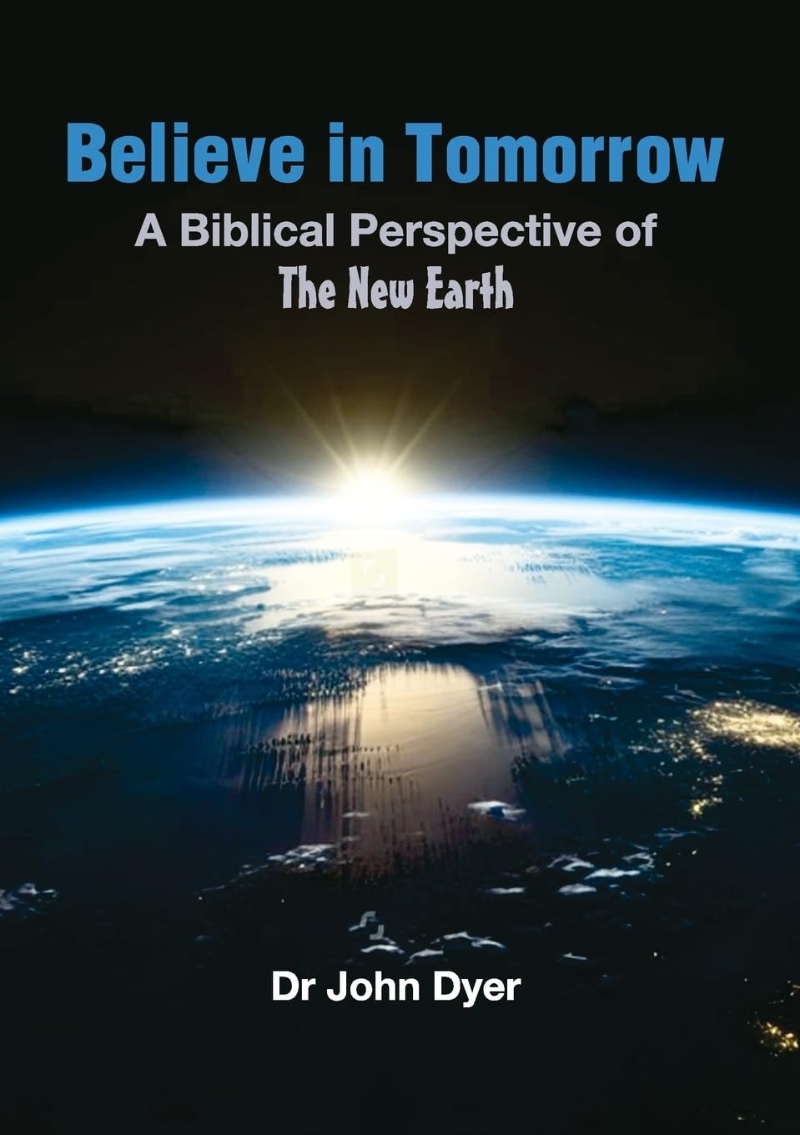Believe in Tomorrow by John Dyer
Well written overview of scientific and biblical perspectives of the cosmos, showing how science and Christian faith can work together towards a fuller understanding of the universe and its creator
 Believe in Tomorrow – A Biblical Perspective of the New Earth
Believe in Tomorrow – A Biblical Perspective of the New Earth
By Dr John Dyer
Kingdom Publishers
ISBN: 978-1-916801-19-6
Reviewed by Martin M’Caw
Believe in Tomorrow is not an eschatological treatise but a general and critical overview of scientific and biblical perspectives of the cosmos.
Dyer makes the point that William Paley's use of the watchmaker analogy was to show that natural processes are more complex than the workings of a watch, and so also require a designer. It was others who used this analogy to say that the watchmaker left the watch to run by itself. Paley argues that nature adapts to different environments and settings and that because of its complexity requires a creator or designer, not that God left the world to run itself.
In his Foreword John Weaver summarises Dyer’s purpose as exploring both scientific discoveries and the Bible as complementary rather than conflicting accounts of the world as we know it. It would be good to bring out Weaver’s point that this is a critical exploration of the discoveries of science and the biblical text.
Dyer writes that the Big Bang is almost universally recognised as the beginning of the universe and the fundamental question is what caused it? If the Big Bang created the cosmos what ignited it given the assumption nothing already existed to ignite it? Creation and evolution are complementary rather than incompatible: essentially compatible.
While evolution theory might explain how the universe came into being, the creation story gives the reason for its existence. Dyer takes up a point made by Campbell Morgan regarding the first verse of John’s gospel that ‘in the beginning was the Word’. Because ‘was’ is the imperfect tense the ‘Word’ gives a sense of continuity and timelessness which covers the scientific and theological view of creation.
Dyer asks how the scientific predictions about the fire of the sun dying out can be reconciled with the biblical vision of a new heaven and earth. Whatever our stance on the Parousia and the life of heaven, here is a well written opportunity to review the roles of scientific discoveries and their implications for the future with the biblical perceptions of human life in the eternity of heaven.
In the second half of the book Dyer considers scientific discoveries alongside biblical pictures of the state of things when Christ returns. He places the discoveries of a greater universe from scientific exploration within the infinity of God. Scientific exploration and Christian faith are not in opposition, but complementary.
This book shows how science and Christian faith can work together towards a fuller understanding of the universe and its creator from beginning to end.
The Revd Dr Martin M’Caw is a Baptist minister (retired) and Wing Chaplain No 2 Welsh Wing RAF Cadets (also retired)
Baptist Times, 20/06/2025